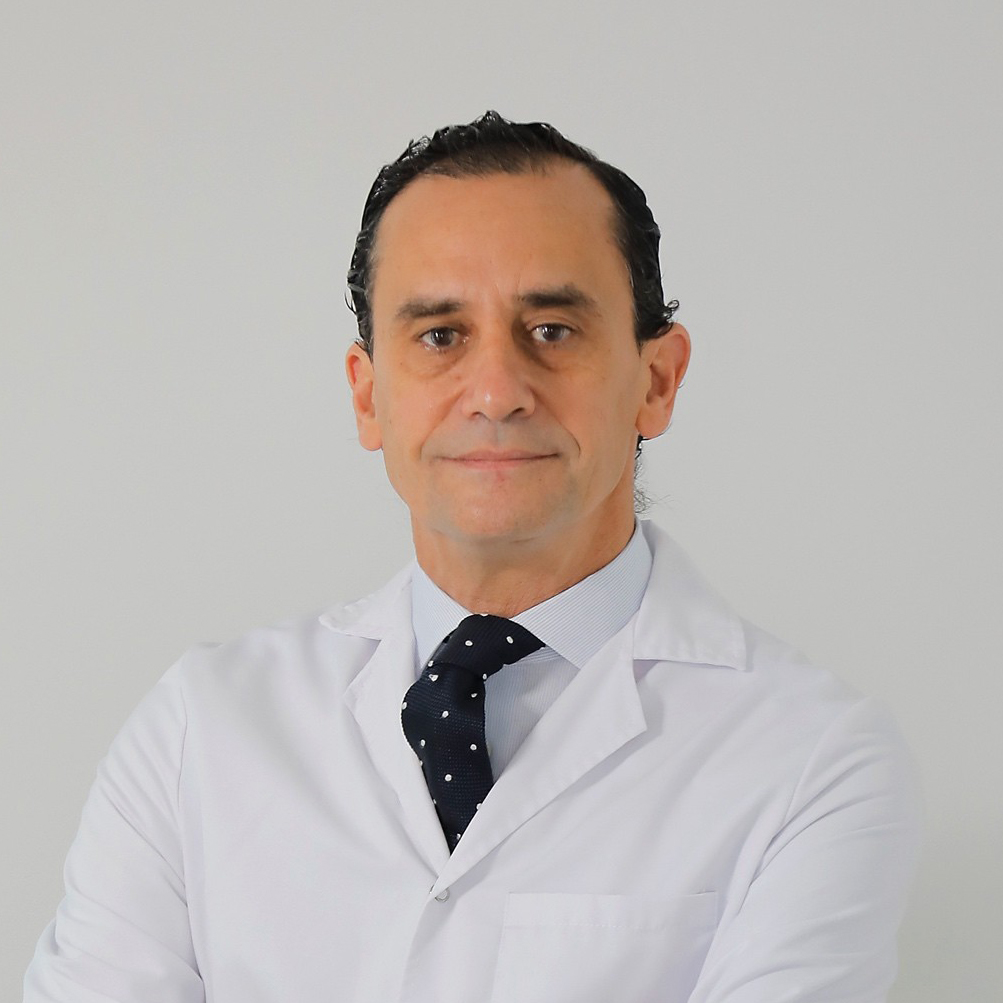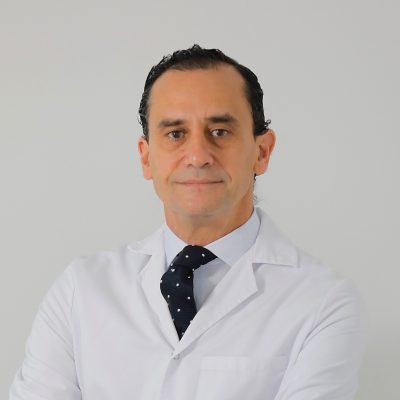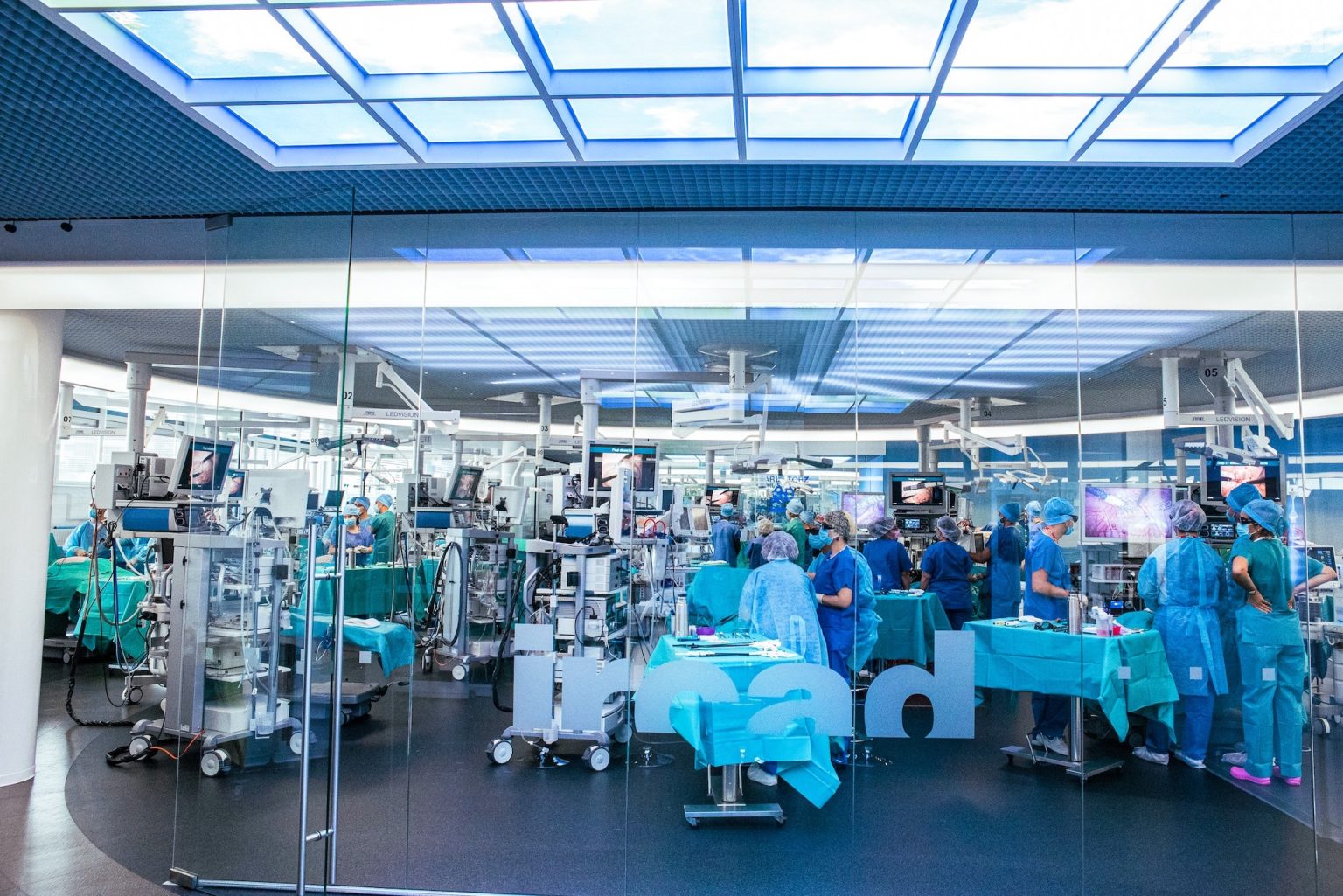
Since the early 2000s, the month of March has been marked by awareness campaigns that provide the public with up-to-date information on critical health issues. By highlighting advances in diagnosis and treatment, these campaigns play a vital role in encouraging early screening – an essential first step in patient care. They also promote prevention through practical, easy-to-follow advice.
This year, World Obesity Day is drawing attention to the harmful impact of ultra-processed foods on the global obesity epidemic. European Endometriosis Awareness Week is emphasizing the recent introduction of a saliva-based diagnostic test that makes screening for this complex condition more accessible. Meanwhile, the “Blue March” campaign is sounding the alarm on low participation in the colorectal cancer screening program, which targets individuals over the age of 50.
IRCAD is fully aligned with these initiatives, as these public health challenges are closely tied to the work the Institute has been doing for over 30 years. Initially focused on digestive cancers, IRCAD has since expanded its scope to a wide range of medical specialties – both oncology-related and not – that now benefit from the advances in minimally invasive surgery. These include the pinpoint accuracy of robotic surgery, the evolution of endoscopic techniques, and the added value of augmented reality in surgical imaging.
Today, IRCAD is actively involved in fields such as the treatment of gynecological cancers and endometriosis, obesity management through bariatric surgery, and the use of colorectal surgery for non-cancerous inflammatory conditions like Crohn’s disease.
As part of Blue March, we spoke with Professor Morales-Conde, one of the world’s most renowned experts in digestive and colorectal surgery. A long-standing member of IRCAD’s International Faculty of Experts, he has contributed to more than 50 training courses at the Strasbourg Institute over the past 20 years. He shares his insights into current approaches to colorectal cancer care and the key developments expected in the near future.

Professor Jacques Marescaux
President & Founder of IRCAD
Colorectal cancer: the essential role of screening and minimally invasive surgery

Professor Salvador MORALES-CONDE
Head of Surgery, Virgen Macarena University Hospital (Seville, Spain) & IRCAD expert in digestive, hernia, and colorectal surgery
Prof. Salvador Morales-Conde: As a digestive surgeon, I can confirm the high prevalence of CRC—it is the third most common cancer worldwide, accounting for about 10% of all cancer cases. Screening is essential because there is no true prevention, aside from a few dietary precautions that have only limited impact. In Europe, screening programs are in place to detect blood in the stool, followed by colonoscopy if necessary. However, very low participation rates remain a major concern, since screening allows us to detect not only tumors but also polyps. These polyps can be easily removed during a colonoscopy, without requiring further treatment, whereas if left untreated, they may eventually develop into cancer. When CRC is detected a bit later, colonoscopy can still identify it—usually at an early stage—making surgery less complicated, as small tumors are much easier to remove than larger ones. Early-stage cancer has a very high survival rate, with complete recovery in 90% of cases. In the metastatic stage, treatment options are limited and prognosis is generally poor.
It is therefore critical to increase public participation. Today’s screening process may be too complex: collecting a stool sample, sending it by mail or dropping it off with a doctor, waiting for results, then possibly undergoing a colonoscopy… Handling stool samples is often seen as unpleasant, which may deter people from participating. Fortunately, simpler solutions are in development, such as breath or blood tests that can detect markers indicating the presence of polyps or tumors. If a straightforward test can reliably determine the need for a colonoscopy—with a low false positive rate—it could help boost participation. Until then, it remains essential to keep encouraging people to take part in the current screening programs.
Prof. MC: It’s important to understand that not everyone is at the same level of risk. Current screening targets people over 50, but we know that some individuals are at risk of developing CRC earlier—especially those with a family history. Genetic predisposition is the most common reason for early-onset CRC. Some external factors—such as diet or pollution—can influence earlier development, but they mainly play a role when there is already an underlying predisposition. That’s why it’s crucial to identify at-risk individuals between the ages of 30 and 50. By screening both the general population over 50 and younger people who are at risk, we should be able to detect the vast majority of cases. In the future, I am certain that artificial intelligence will help identify younger patients who need closer monitoring by analyzing available data and assessing their overall risk.
Regardless of the age of onset, surgery remains the most effective treatment—and that won’t change. Chemotherapy may or may not follow, depending on the stage of the tumor, but surgery is the most decisive factor for a successful outcome. That’s why it’s essential to ensure high-quality training for the next generation of surgeons. This is exactly where IRCAD plays a crucial role, by training surgeons from all over the world. When colorectal surgery is performed correctly, the recurrence rate drops and survival increases.
My story with IRCAD actually began well before 2005! In 1998, I was a medical resident and traveled to Strasbourg to attend a one-week general surgery course. That was over 25 years ago, but I remember it as if it were yesterday—I was amazed by everything I saw. I was struck by the facilities and by the new trends in surgery being presented. I witnessed live operations and was thrilled to be learning directly from experts. So, when Professor Marescaux asked me in 2005 to begin teaching at IRCAD, I was more than happy to share my own knowledge and experience with students.
When I teach a course, I always tell participants: “I once sat right where you are now—so one day, you could be standing here, giving this very lecture.” And that’s incredibly exciting.
Even after 20 years, I’m still amazed. You can’t imagine how much IRCAD has grown—from a single building with one auditorium to multiple facilities, operating rooms that mirror real hospital environments, and the latest equipment. What amazes me most is not just the infrastructure, but what it represents—facilities can only grow if people truly want to come. I’m continually impressed by the sheer amount of knowledge being shared here, which explains why so many people choose IRCAD. This applies not only to the on-site courses but also to WebSurg, IRCAD’s free online university.
So many people approach me at conferences to say they’ve watched my lectures on right hemicolectomy, thanking me because it helped them review each step before heading into the operating room. This ongoing access to videos and lectures after hands-on training fosters a continuous learning journey, which is extremely valuable.
I’m also impressed by IRCAD’s global impact, with mirror institutes opening across continents. I recently went to IRCAD Africa in Kigali last July to teach courses on abdominal wall surgery and colorectal procedures. It was incredible to see this new generation of African surgeons so eager to learn—many coming from countries that lack facilities like IRCAD Africa. This global expansion adds even more value to the IRCAD project, because well-trained surgeons mean better care for patients everywhere. I feel truly fortunate to be part of it.
The biggest breakthrough in recent years, in my opinion, is the development of minimally invasive surgery (laparoscopy). In 2005, less than 20% of colorectal procedures in Spain were done laparoscopically—today, that number exceeds 80%. The laparoscopic approach offers greater comfort for patients, less pain, fewer incisional hernias, and quicker recovery. However, we can still improve this technique by incorporating innovations like artificial intelligence, 3D reconstruction, and robotics.
For example, just last month, my team performed what I believe to be the most innovative colorectal procedure in the world—we used AI to teach us and visualize the anatomy in a case of colon cancer. We created a preoperative hologram using 3D reconstruction, and we used indocyanine green (ICG) angiography to map blood supply to the colon before performing the anastomosis. It was an incredibly impressive procedure—but its foundation was still minimally invasive surgery, which highlights once again the critical importance of surgical training.
In fact, I had the opportunity to work with IRCAD to study how ICG could help reduce anastomotic leaks and complications, since the Institute is heavily involved in research and development in addition to its teaching mission.
Looking to the future, I believe AI will completely change how surgery is practiced. As I mentioned earlier, it’s incredibly valuable for surgeons to come to IRCAD and observe experts like Professor Corcione, Professor Forgione, or myself—and then to review our procedures afterward on WebSurg. But in the OR, surgeons are alone. They can’t call on us if something unexpected happens. This is where AI-based tools could become essential—helping and guiding surgeons in real time to ensure optimal outcomes.
My team in Seville is actively working on developing such intraoperative AI-based support systems. We’re also working on AI-powered solutions that allow real-time identification of anatomical structures, displaying the patient’s CT scans on-screen with 3D reconstructions and anatomical overlays.
As you can see, minimally invasive surgery is the cornerstone of colorectal surgery and must be part of a continuum: in-person training at centers like IRCAD, regular updates via online platforms like WebSurg, and intelligent assistance during surgery if needed. This training continuum is absolutely essential to ensure the best possible surgical outcomes for patients.
About IRCAD:
Founded in 1994 by Professor Jacques Marescaux, IRCAD is an internationally renowned institute dedicated to training and research in minimally invasive surgery. Each year, 8,800 surgeons from around the world train at the Strasbourg institute, either in-person or via WebSurg, a free online university with over 470,000 registered members worldwide.
For more information, visit https://www.ircad.fr/en/
We hope you enjoyed this 18th edition of the IRCAD newsletter.
For any inquiries, subscriptions, or unsubscriptions, please contact:
FINN Partners – sante@finnpartners.com
Don’t miss the latest news from IRCAD.
Sign up here for our newsletters and communication mailings
to stay informed about us and our courses

Please note that the IRCAD administrative board and staff are closely monitoring the evolving COVID-19 situation, in full compliance with all applicable laws and regulations in France. The health, safety, and well-being of our participants, experts and staff are our top priority!
Despite the current context, the IRCAD stands firmly by your side to help you acquire knowledge and skills. Come and join us !
We would like to draw your attention that the « Vaccine Pass » is now mandatory in France since end of January 2022 and replaces the former « Health Pass » to access places that are open to the public, such as cinemas, museums, cafés and restaurants, hotels as well as the IRCAD Institute which welcomes participants in the framework of its courses and seminars. Thus, a PCR test without vaccination is no longer sufficient to take part in our courses.
The vaccine pass includes a proof of the following (one of the 3 items is sufficient):
Further information about the new vaccine pass can be found at :
We very much hope to be able to count on your kind understanding of those rules which have been set by the French Government and which our Institute is required to apply